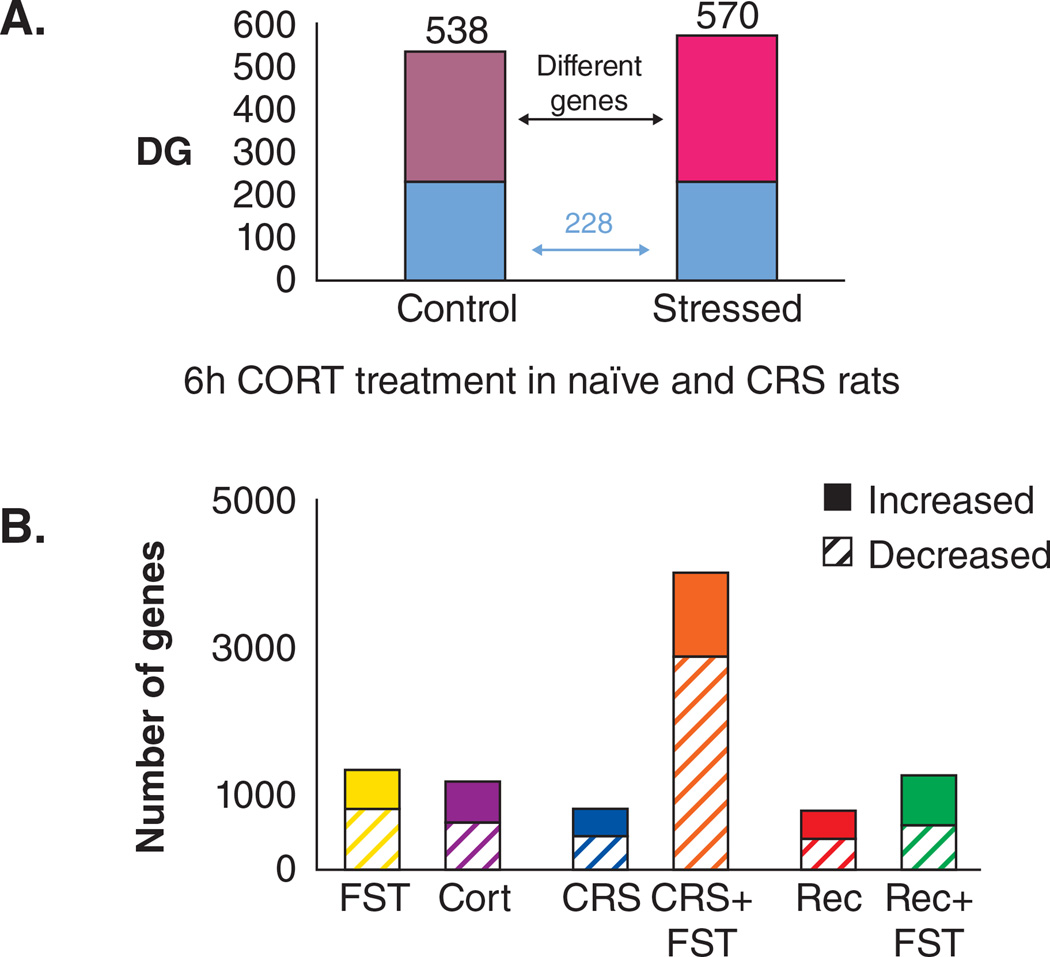Figure 9.
Effects of stress and acute glucocorticoid treatment on gene expression in hippocampus. A. Naïve and 21d chronically restraint stressed (CRS) rats respond differently to a 6h bolus of corticosterone in which more than half of the genes turned on or turned off are different (Datson et al 2013). B. Naïve mice given acute forced swim stress (FST) show a largely different pattern of gene expression (up and down) from naïve mice given an acute corticosterone bolus. Moreover, mice that are either naïve, or 21d CRS or 21d CRS plus 21d recovery respond, in large, differently to acute FST with respect to gene expression levels. There is a core of genes that always respond to the acute FST. (Gray et al 2014).

